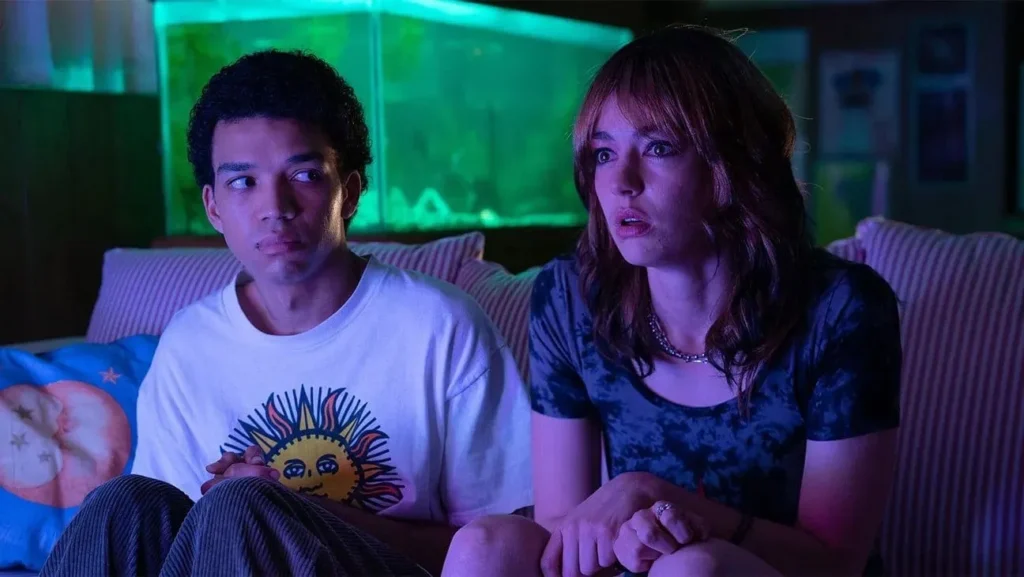I SAW THE TV GLOW
(director/writer: Jane Schoenbrun; cinematographer: Eric Yue; editor: Sofi Marshall; music: Alex G; cast: Justice Smith (Owen), Brigette Lundy-Paine (Maddy), Helena Howard (Isabel), Danielle Deadwyler (Brenda, Owen’s Mom), Fred Durst (Frank, Owen’s Dad), Ian Foreman (Young Owen), Lindsey Jordan (Tara), Conner O’Malley (Dave), Emma Porter (Mr. Melancholy/Marco/Amanda/Evil Clown), Amber Benson (Johnny Link’s mom); Runtime: 100; MPAA Rating: PG-13; producers: Emma Stone, Dave McCary, Ali Herting, Sam Intili, Sarah Winshall; A24; 2024)
“A serious story told with a light touch.”
Reviewed by Dennis Schwartz
A diverting and odd teen drama about self-reflection and how pop culture can stimulate us but also can keep us down. It’s perceptively directed and written, telling a queer story of heartbreak and isolation. The TV Glow is a serious story told with a light touch by the rising star indie filmmaker, Jane Schoenbrun (“We’re All Going to the World’s Fair”). It’s a sure-thing cult classic on outcast youth, and tells a groundbreaking trans-identity and queer story that’s also laden with elevated horror film trappings, 90s nostalgia and hallucinogenic surreal images.
In the suburbs–the outcast high school teens, one unsure of his sexual identity and the other who identifies herself as queer, are unable to adjust to the real world. They are the timid, biracial Owen (Justice Smith) and the older by two years and similarly disaffected from society Maddy (Brigette Lundy-Paine). In 1996 they develop a detached yet meaningful relationship over watching TV together to escape their ugly reality. Their program of choice is The Pink Opaque (a supernatural Buffy the Vampire type of TV show from the ’90s). Their muted relationship carries on for a period of thirty years, with times of long separations.
It follows Owen as a child (Ian Foreman), who was misunderstood by his strict white father (Fred Durst) and ignored by his distracted mom (Danielle Deadwyler).
It plays out as a nightmare of anxiety for the two loners who have difficulty connecting with others, and translates well as a beacon of light for trans cinema.
Though at times is unwieldy when going off topic, but its storytelling works fine when it stays focused on the pair dealing with their sexuality issues. The sad tale, visually stunning and uniquely told, provokes meaningful commentary on what it’s like to be queer or trans.
It played at the Sundance Film Festival.

REVIEWED ON 4/5/2024 GRADE: B+